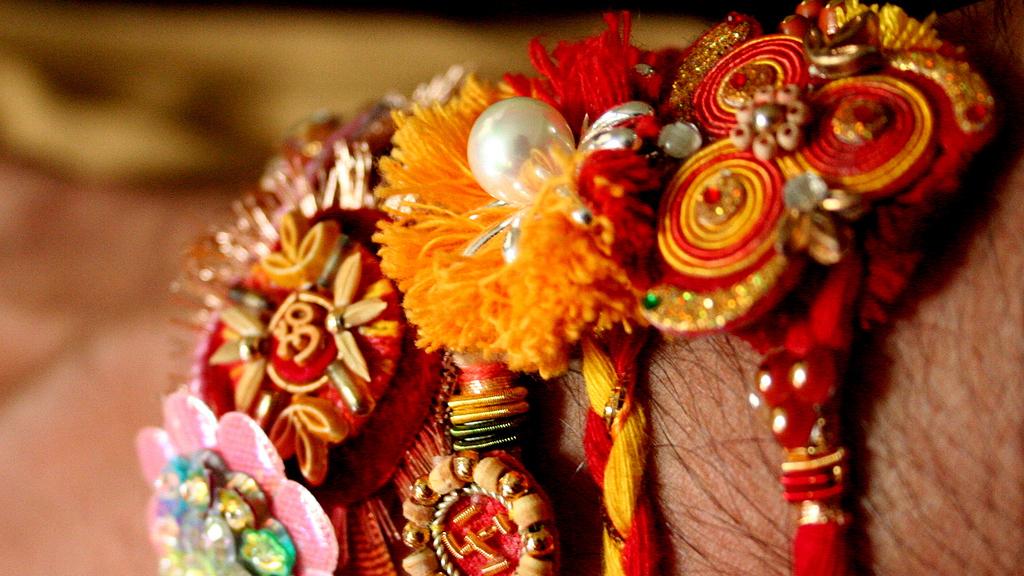Rakhia are “sacred threads” that sisters tie onto their brothers’ wrists for the Hindu festival of Raksha Bandhan.
I am the eldest of three siblings. I have one sister who is three years younger than me. As kids, we played, laughed and had fun together. But if she cried when I fought, my father would tell me to be nice to her — even when it wasn't my fault.
Growing up in India, my parents always reminded me that it was my duty to take care of my sister. The responsibility was not a small one. They told me I would have to protect her, be there when she needed help, find her a suitable husband, make sure she was happy in her marriage. And if for some reason the marriage failed or her husband died, I would have to take care of her for the rest of her life.
My family is not an exception in this regard. In most Hindu families in India, parents raise their sons with this idea. To be the keeper of your sister is second nature for every brother. It's not even a question.
To celebrate this bond between brothers and sisters, there's a festival called Raksha Bandhan. It's a Hindu holiday, but it's been celebrated by people of every religion in India for hundreds of years. A few days before the festival, almost every street in India is lined with glittering stalls. Boxes full of mithai — Indian sweets — are sent around the country and abroad.
On Raksha Bandhan, millions of sisters tie a Rakhi, a sacred thread, on their brothers' wrists. If you don't have a sister or a brother, you celebrate with cousins or friends.
My sister and I have shared this bond for almost 40 years. Every year, on the day of the festival, I have vowed to take care of her. But so far she has never asked for help. Instead, it is my sister who has looked after me, cared for me and called me to find out if I was doing well.
For the past 11 years she's sent rakhis to me in the US. This year I'm in India, and I'm lucky to have her tie the sacred thread on my wrist in person.
I am the eldest of three siblings. I have one sister who is three years younger than me. As kids, we played, laughed and had fun together. But if she cried when I fought, my father would tell me to be nice to her — even when it wasn't my fault.
Growing up in India, my parents always reminded me that it was my duty to take care of my sister. The responsibility was not a small one. They told me I would have to protect her, be there when she needed help, find her a suitable husband, make sure she was happy in her marriage. And if for some reason the marriage failed or her husband died, I would have to take care of her for the rest of her life.
My family is not an exception in this regard. In most Hindu families in India, parents raise their sons with this idea. To be the keeper of your sister is second nature for every brother. It's not even a question.
To celebrate this bond between brothers and sisters, there's a festival called Raksha Bandhan. It's a Hindu holiday, but it's been celebrated by people of every religion in India for hundreds of years. A few days before the festival, almost every street in India is lined with glittering stalls. Boxes full of mithai — Indian sweets — are sent around the country and abroad.
On Raksha Bandhan, millions of sisters tie a Rakhi, a sacred thread, on their brothers' wrists. If you don't have a sister or a brother, you celebrate with cousins or friends.
My sister and I have shared this bond for almost 40 years. Every year, on the day of the festival, I have vowed to take care of her. But so far she has never asked for help. Instead, it is my sister who has looked after me, cared for me and called me to find out if I was doing well.
For the past 11 years she's sent rakhis to me in the US. This year I'm in India, and I'm lucky to have her tie the sacred thread on my wrist in person.
